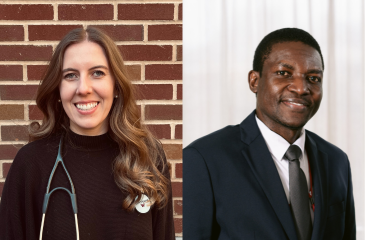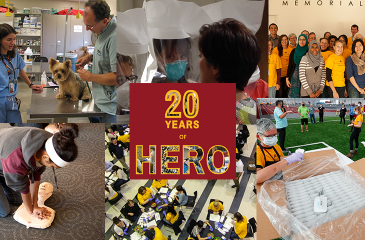Thousands of migrant farmworkers travel to Minnesota every summer to contribute to Minnesota's agricultural workforce. Unfortunately, they experience health inequities due to pesticide exposure, poor housing, low health literacy, lack of transportation and language barriers. Oftentimes, care is sought in the emergency room or delayed until complications arise. Preventative care, including immunizations, is delayed or avoided.
“Further, health education is typically siloed, and interprofessional learning opportunities are mostly limited to the Twin Cities region,” said Jonathan Kirsch, MD, assistant professor of internal medicine. “This means that learners rarely are afforded the opportunity to interact with low-resource patients in greater Minnesota and suffer from lack of knowledge and experience when they become practitioners.”
To help address these issues, Kirsch and University colleagues Oscar Garza, PhD, College of Pharmacy; Karin Quick, PhD, School of Dentistry; Benjamin Katz, MD, Medical School; as well as Rachel Silva, MD, MPH, from Hennepin Health Care, will work to strengthen and expand community partnership to meet the needs of rural farmworkers in Minnesota, and offer annual in-depth service-learning experiences for future health care professional trainees. The group will expand an existing interdisciplinary one-month medical student and resident rotation to integrate food systems, public health, dentistry, and pharmacy. Together with Tri-Valley Opportunity Council, Centro Campesino and Community Health Services, they will provide on-farm health screening and preventative care.
“This program will integrate existing programs with community organizations to provide a diverse and dynamic learning environment for our students and better provide service to families that make up the backbone of our agricultural economy,” said Kirsch.
Social determinants of health, occupational, environmental, and population health will be taught via experiential learning through worksite visits, mobile clinics, and reflective activities. At program completion, trainees will be better equipped to provide culturally-aware care to a highly-marginalized population. Faculty and trainees will provide care during harvest season, integrating partnering community organizations to improve continuity.
This initiative received funding from the Office of Academic Clinical Affairs BOLD Ideas Grant program which supports interdisciplinary teams seeking to tackle the “wicked problems” inhibiting the health and wellbeing of our communities.



